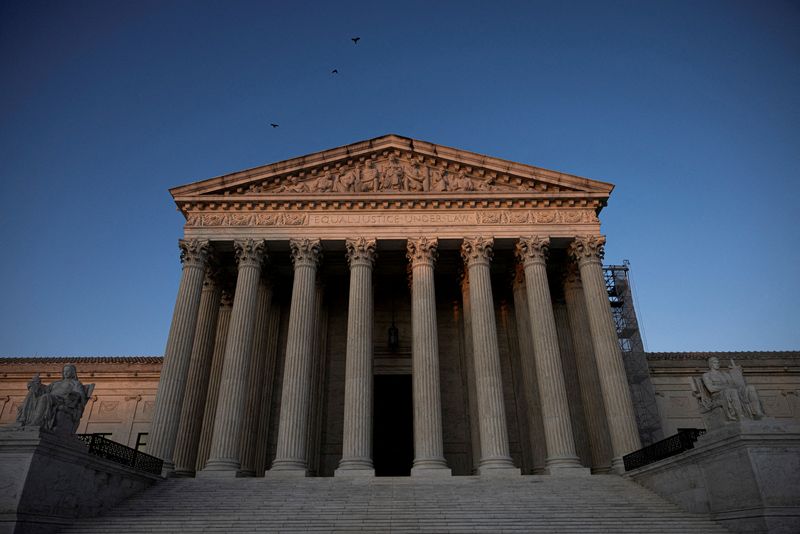By Mike Scarcella
(Reuters) - Law firms are capitalizing on client uncertainty sparked by a flurry of new U.S. Supreme Court rulings that favored opponents of federal agency powers, even as lawyers themselves differ on the decisions' immediate and long-term effects.
Within hours of the decisions, major U.S. law firms began sending out client-focused emails and webinar invitations to discuss the cases and showcase their expertise, a marketing strategy that often follows major legal developments.
Law firms known for challenging federal regulations stand to be particularly busy, but lawyers said it will take time for the new landscape to take shape.
In the space of three days, the high court clamped down on agencies' use of their own internal judges, overturned the 1984 precedent known as " Chevron (NYSE:CVX) deference" that required judges to defer to agency interpretations of laws deemed ambiguous, and revived a regulatory challenge over statute of limitations that could open a window to more lawsuits over old regulations.
Helgi Walker, who co-leads the administrative and regulatory law practice at Gibson, Dunn & Crutcher, predicted the rulings would be "a shot in the arm to administrative law challenges."
Her firm has led a number of industry challenges to rules by the Securities and Exchange Commission and other agencies.
"We no longer have to go into court with an anvil tied to our ankles," said Walker. "That's what it feels like when you are pushing against Chevron."
Alston & Bird’s Daniel Jarcho, who also handles litigation involving federal regulators, said he received a “flood of inquiries” from current and potential clients looking to understand the rulings.
He said the deference that U.S. judges accorded to agencies under the Chevron standard had chilled litigation by businesses of all sizes. Now companies will be inclined to sue because the likelihood of success is greater, he said.
The statute of limitations decision could also lead to more litigation. The Biden administration warned before Friday's decision that widening the window to sue would expand the class of potential challengers and keep the court busier.
The rulings will play out in cases brought by individuals, companies and industry groups opposing regulations, or defending themselves from agency lawsuits.
Not everyone expects a sudden crush of new case filings, however. Some attorneys said clients were asking how the Supreme Court’s orders applied to cases already in the courts, and not whether to bring new ones.
Litigator Danielle Desaulniers Stempel of Hogan Lovells called the demise of Chevron deference a reckoning that was years in the making.
“I don't know how many companies have been holding off on filing lawsuits” and would suddenly sue now, she said.
Bryan Killian of Morgan, Lewis & Bockius called the post-Chevron world a dynamic situation that was sparking questions from clients in all kinds of industries.
Some tax clients had imminent filings due and wanted to know how they could preserve challenges to IRS regulations, he said.

Lynn Calkins of Holland & Knight said she expected the Supreme Court's rulings would embolden some companies to take a more aggressive litigation tack, but not across the board. Some may turn to lobbying instead to challenge regulations, she said.
Most corporate clients "don’t relish litigation," Calkins said. “They're not chomping at the bit to increase legal spend.”